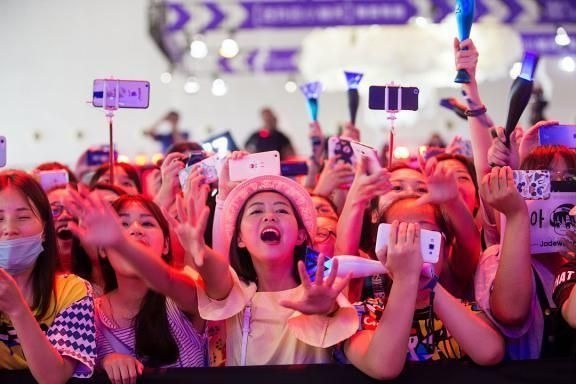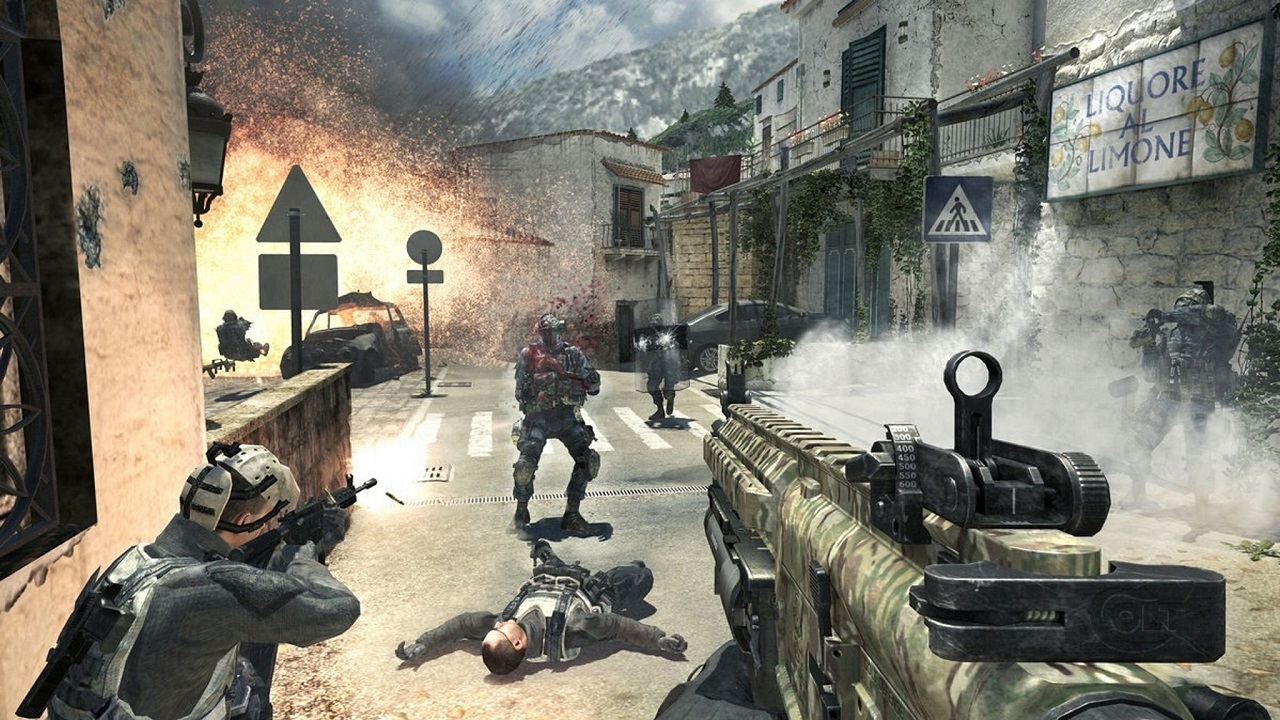For a majority of parents in this day and age, video games are always the culprit to their children’s bad behavior. If they are too lazy to study, then they are too addicted to games. If they don’t want to listen to their parents, games must have a bad influence. If they like to fight, games are the ones teaching them violence. Because of all the issues that games have caused, parents also believed that governments should ban children from playing games despite being a crucial means of communication today.
The Chinese government did exactly that. On September 1, 2021, the National Press and Publication Administration (NPPA) issued a new regulation regarding the legal playing duration of underage gamers. The regulation states that children and minors can only play games for 3 hours per week. We have previously discussed the impact of these regulation changes on the gaming and esports industry here.
Limiting the playing time of video games for children is just one of the Chinese government’s efforts to change its culture. In fact, the Chinese government has also tightened regulations related to technology and also entertainment.
What Changes Did the Chinese Government Make?
Game time restrictions for underage gamers are not the only rules in the gaming industry that the Chinese government has changed. They also tightened the review process for games that will be launched in the country. In case you didn’t know, the Chinese government reviews every game that will be launched in China, ensuring that it meets all the requirements for its release (such as language or content used).
The source of this report came from South Morning China Post, which managed to receive an internal memo from the gaming association under the Chinese government. The memo states that video games must exhibit values that reflect Chinese history and culture. Furthermore, games featuring effeminate male characters or romantic stories between the same sex will be banned from launching. Indeed, games will not be considered a pure means of entertainment, but also as a tool for propaganda.
“If regulators can’t tell the character’s gender immediately, the setting of the characters could be considered problematic and red flags will be raised,” Games Industry quoted the memo. Additionally, games are also prohibited to give players to play as the protagonist or antagonist in the storyline. “Some games have blurred moral boundaries. Players can choose to be either good or evil … but we don’t think that games should give players this choice … and this must be altered,”
“Some games have ambiguous moral concepts. Players can choose whether they want to be a good person or a bad person … But, we feel, that choice should not be given to players. So, this should be changed,” reads the memo.

Despite all this special treatment that the gaming industry is receiving, it is not the black sheep in the eyes of the Chinese government. Various fields, such as the entertainment industry, are also getting their fair share of regulation changes.
On September 2, 2021, the National Radio and Television Administration (NRTA) notified TV companies and internet platforms that they must strictly screen the artists and guests who appear on their shows. Actors or musicians who attend a program must not only have a good reputation and behavior, but they must also have political views in line with the Chinese government.
Here are the eight primary regulation details which NTRA plans to implement in the entertainment sector:
- Radio, TV, and internet platforms may not employ or invite guests who hold politically wrong views, have violated the law or spoke against public morals and statutes.
- They may not air programs starring child celebrities. Entertainment programs must have a strict voting system. The programs are also prohibited to encourage fans to spend money on memberships to vote for their idols.
- Programs should promote traditional culture as well as create correct beauty standards. They are also not allowed to discuss gossip, effeminate idols, vulgar celebrities, or wealth.
- The entertainment studio must limit and discourage high salaries to the entertainers. They must make rules regarding how much an entertainment program can pay its guests. They should encourage celebrities to take part in charity events and punish the ones who are involved in illegal contracts or people who evade taxes.
- They should make rules for people who work in the entertainment world. They must also provide professional and moral training. TV presenters must be licensed and their activity on social media monitored.
- They should encourage professional commentary on the world of entertainment. The value they should emphasize is correct political views and avoiding false rumors or negative comments. Instead, they should focus on promoting a positive culture to the audience.
- Entertainment associations should criticize celebrities who set a bad example for the public. Training must be provided, and everyone in the industry must be encouraged to follow the rules.
- Regulators must be responsible for listening to complaints from the public and providing answers to these concerns.

There is one overlap in the new regulations set upon the gaming and entertainment sector: the prohibition of displaying effeminate men. One of the prominent features of these effeminate males is the use of makeup or style that is not masculine or contrasting with the traditional Chinese culture.
Indeed, not all Chinese male artists exhibit a masculine style. Some of their fashion is inspired by Japanese and South Korean actors and singers. In the hopes of encouraging young men to be masculine, the Chinese government banned content featuring effeminate male characters in video games, the South China Morning Post reports.
The Chinese government has not only tightened regulations regarding entertainment and game industry players, but also fans, especially fans who worship their idols too much. One concrete form that the Chinese government implements is to prohibit youth from participating in fan clubs. Indeed, the turnover value of money due to fan activities is quite large. According to the iResearch Consulting Group report in 2020, the amount of money involved in fan activities reached 4 trillion CNY or around Rp. 8,873 trillion in 2019. And that figure is expected to rise to 6 trillion CNY (about Rp. 13,300t trillion) in 2023.
Apart from banning participation in fan clubs, the government also prohibits teens to take part in voting or spending money to support their idols. For example, if an artist becomes a brand ambassador for a certain company, then teen fans are prohibited from purchasing the promoted products. The Chinese government believes that all these preventive measures against fandom will improve the lives of their youths.
The Chinese government also requires celebrity agencies to be active in monitoring fan club movements and preventing clashes between fans. Celebrity rankings, which are incredibly popular in China, will also be abolished in the future. Instead, the government will only allow lists of trending music or movies which do not mention the involved artists or actors.

The Chinese government pushed all these changes in gaming or entertainment to alter the fabric of Chinese culture and society. Peixin Cao, professor at the Communication University of China, an institution that has educated many entertainment talents in China, mentioned that many celebrities in the Chinese entertainment industry have committed illegal or immoral acts in the political, economic, or personal sphere. Therefore, it is not much of a surprise that the Chinese government was adamant about increasing the strictness inside the industry.
But the government is not the only one agreeing on this matter. Cao also revealed that a large group of parents and social science researchers want the government to intervene in the entertainment world. They do not want the younger generation to be adversely affected by corrupted industry. For a long time, actors have used their economic power and social media influence as leverage to silence opposing opinions, which is why direct government intervention is the only solution.
“I believe that the general audience also has dissatisfaction with the bad ethos of the entertainment industry.,” Cao said, as quoted by The Guardian. “The parents of adolescents may have felt it more deeply.”
Can Content Really Influence People’s Mindset?
With all these new laws, it is clear the Chinese government is trying to filter the content that the people of China consume. The question that arises is how effective this actually is? Does content influence how people think and the values that they hold?
In a journal titled Critical Media Literacy and Transformative Learning: Drawing on Pop Culture and Entertainment Media in Teaching for Diversity in Adult Higher Education, it is concluded that the media and pop culture does have a significant effect in alternating adults’ perspectives or takes on certain issues.
The journal also states that the media can be used to improve literacy in critical thinking based on the consumed content. However, this education tool can also backfire or potentially become useless if the audience blindly digests content without trying to understand the underlying messages conveyed.

For example, in movies, people of color are often portrayed as criminals or drug addicts, which may implicitly reinforce the stereotype that they are dangerous people. However, cinema also has the power to raise awareness on important issues. The film, An Inconvenient Truth sends a vital message to its audience by discussing the topic of global warming.
Content coming from video games is also suspected to affect the players’ mindset, which is why game creators or developers often insert their idealism in their games. A topic that is constantly brought up and interests researchers in the field of psychology is the correlation between video games and violence in adolescents.
Many studies have tried to investigate the relationship between adolescent aggression and violent games. One of the research models used is the General Aggression Model (GAM) by Anderson et al. Based on this research study, playing violent games can indeed make players more aggressive. Many other studies also agreed with this proposition, mentioning that playing violent games can trigger aggressive behavior in teenagers.
However, not all researchers agree with this point of view. They also provided reasons why such a connection between the two might arise despite having no notable correlation. Sherry (2001) found that the impact of violent games on the level of aggression in adolescents is not that significant. Another study by Ferguson (2007) suggests the presence of a publication bias in the studies related to this topic. Publication bias often arises as articles with controversial results or outcomes have a greater chance of being published.
Ferguson then adjusted the publication bias on the studies that had been released. In the end, he found no significant evidence that could strongly prove the hypothesis that video games could increase a person’s level of aggressiveness. He also proposed a new study model different from GAM, namely the Catalyst Model (CM).
Based on the CM model, a person’s aggressiveness is predominantly determined by genetics. People who do have an aggressive nature are more likely to be violent in stressful situations. External factors, such as video games, generally do not influence levels of aggressiveness. Instead, they purely act as a catalyst that might trigger aggressive behavior. Therefore a non-aggressive person cannot be suddenly violent just by playing video games on a regular basis. Several studies also show that the level of aggressiveness in adolescents is not caused by exposure to violent games, but by antisocial personality, peer pressure, or family violence.

In The study titled Relation of Violent Video Games to Adolescent Aggression: An Examination of Moderated Mediation Effect, researchers Rong Shao and Yunqiang Wang tried to combine both the GAM and CM models. It is stated that exposure to violent games does have an influence on aggressive behavior in adolescents. However, other factors (genetics, family background, etc.) might also play a huge part in altering aggression.
Therefore, adolescents who grew up in a positive family environment usually exhibit a light-hearted nature and pay more attention to morals. This behavior will aid them in understanding and filtering violence when it is presented in video games.
On the other hand, teenagers who live in a negative family environment usually tend towards aggressive behavior, which is further amplified when consuming violent video games. From the study, we can conclude the nature of violence is affected by many different factors, internal (such as genetics) or external (family circumstances, environment, and exposure to violent games).
Impact of China’s Strict Regulations
Changes in laws by the Chinese government have received mixed responses. On the one hand, some parents are happy with the government’s decision because they agree that children’s playtime should be limited. However, others are also skeptical about the effectiveness of the new government regulations. There are, indeed, some minor loopholes that make the playtime limitation quite tedious to enforce. For instance, children and teenagers who want to play online games outside the allotted time can use an account from an adult. The government also regulates the playing time of online games, but not offline games.
“These changes will not be beneficial in the long term,” said Xiaoning Lu, Reader in Modern Chinese Culture and Language, SOAS. “Children may miss opportunities to learn how to express themselves or to discipline themselves.” According to him, the Chinese government’s decision to limit playing time shows the government’s laziness to designate more appropriate regulations.
When asked if these regulatory changes are part of an effort to carry out a cultural revolution, Xianing strongly answered no. Instead, he believes that it is simply an act to revive the socialist culture. “China has a long history of how culture is used by the government to shape public opinion and to create an ‘ideal citizen,” he told Al Jazeera.
William Yang, East Asia Correspondent in DW News and President in Taiwan Foreign Correspondents’ Club also shared his opinion on the matter. He feels that the government’s decision to tighten regulations in many sectors was their attempt to prevent non-governmental parties — such as pop culture icons — to move and control the masses. “That is the reason why the government is trying to remove online fan clubs. Some of these groups have proven to be able to mobilize the masses, which are potentially out of the government’s control,” said Yang.
One of the reasons why the government is focusing on banning effeminate males is that they are worried about the influence of South Korean culture. “K-Pop stars are creating phenomena and fandom culture that has the potential to cause disruption,” Yang continued. “That’s why the government enforces these strict regulations.”
One example of K-Pop fan mobilization was when Lisa’s fans from BlackPink raised 3 million CNY (approximately Rp. 6.6 billion) to celebrate her birthday in March 2021. And this didn’t just happen once. To celebrate Lisa’s birthday in 2020, fans in China raised 1 million CNY (approximately IDR 2.2 billion), which are then all donated to charities and public service projects, reports AllKpop.

Xiaoning further explained that the government’s and Chinese celebrities’ culture differs at the fundamental level. Celebrities often adopt a capitalist culture, while the Chinese government obviously has a socialist background. In the government’s eyes, celebrities are required to maintain their moral integrity and set a good example for society, which is not a capitalist characteristic, to say the least. For this reason, the government often considers celebrities who have had sexual scandals or have evaded taxes as problematic figures.
According to Hongwei Bao from the University of Nottingham, the Chinese government’s movement in tightening regulations in many sectors also stems from several internal factors. One of these factors is the demographic crisis that China has faced for the past few years due to the precariously low birth rate.
According to a report from Reuters, China’s population growth rate was only 5.38% in 2020, setting an all-time low record for the country since the 1953 census. Furthermore, the birth rate in China is also extremely low, only 1.3 children per woman. Japan and Italy, both currently experiencing demographic aging problems, have the same exact birth rate figure.
The main culprit behind this issue is the regulations enacted in the 1970s by the Chinese government itself. The regulations essentially only permit families to only have one child. Now, the effects of these laws are starting to take shape.
In line with Bao, Elliott Zaagman — host of China Tech Investor Podcast — also revealed the same information. He believes that the Chinese government’s attempt to filter content containing effeminate men is derived from their effort to encourage marriage and having children. “Regulators in Beijing might have panicked a little bit after they realized that the demographic crisis is much more severe than they initially thought. Therefore, they are willing to do whatever it takes to encourage people to want to have children,” Zaagman said.
There are also external factors that push the Chinese government to tighten regulations. The deteriorating relationship between China and Western countries is one of these external factors. To ensure that the feeling of Chinese nationalism doesn’t dissipate, the government might have tried to accentuate their values or beliefs onto its people.
“Today, we are constantly seeing the ‘China vs. West’ narratives, both inside and outside of China. If this trend persists, it is likely that Beijing will try to emphasize its unique characteristics as a country compared to the West or the other Asian countries, ” said Bao.
Conclusion
China has gone through vast economic and social transformations in the past few decades. As a result, their cultural values also began to drastically change. The Chinese government, however, wants to revive the socialist culture and thus started to tighten regulations in the sectors such as gaming and entertainment. To that end, the Chinese government seems to be utilizing culture as a tool to shape public opinion.
This extreme decision by the Chinese government is based on various reasons, such as the demographic crisis and the worsening antagonism between China and Western countries. So far, the regulations set by the Chinese government are absolute. However, now, there are still those who question the effectiveness of the regulation.
Featured Image: CD Projekt. Translated by: Ananto Joyoadikusumo













